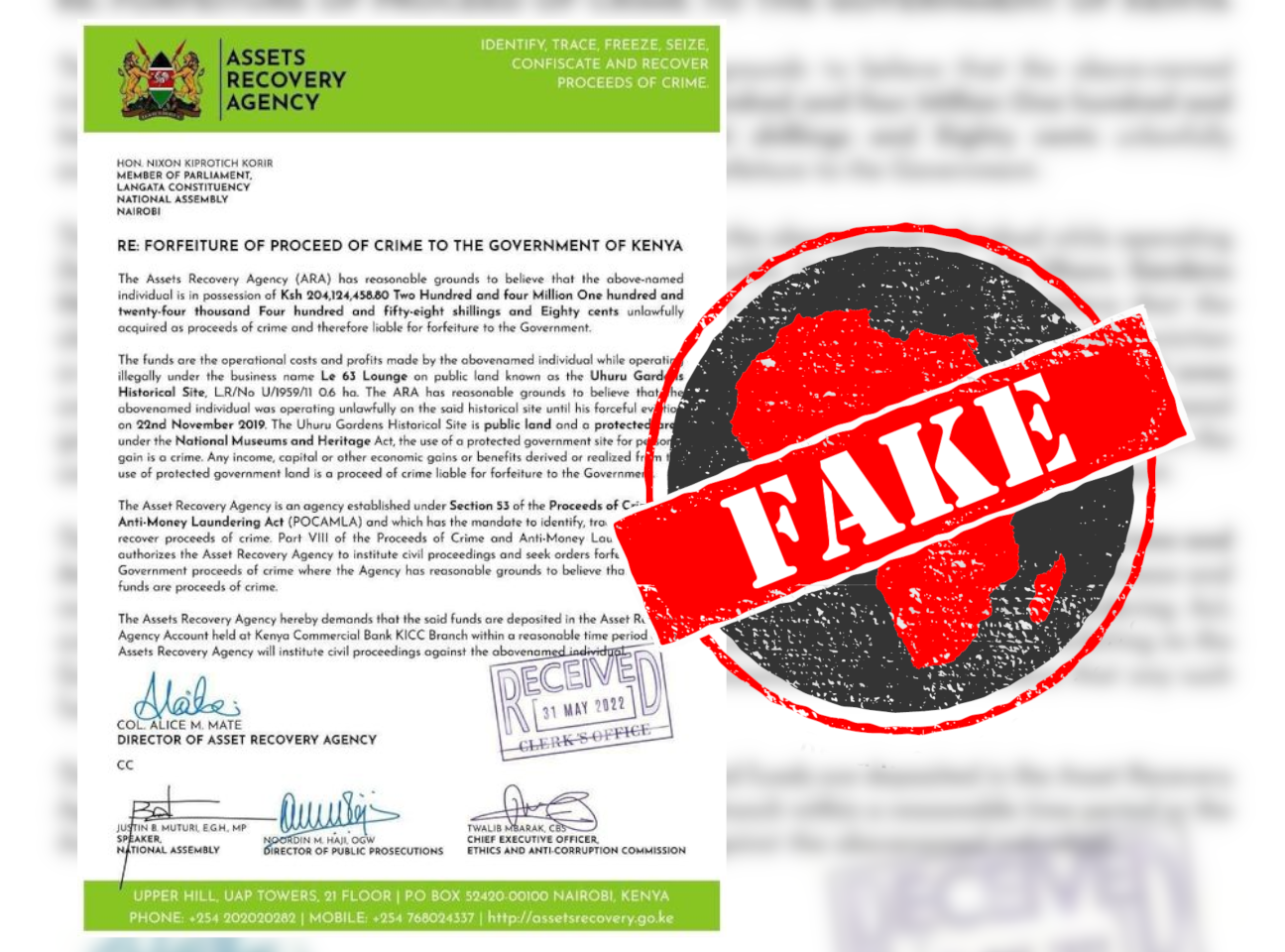A letter posted on Facebook suggests that the Kenyan Assets Recovery Agency has demanded that Kenyan legislator Nixon Korir surrender “proceeds of crime” to the government, or risk prosecution.
“Forfeiture of proceed of crime to the government of Kenya,” reads the subject line of the undated letter.
“The Assets Recovery Agency (ARA) has reasonable grounds to believe that the above named individual is in possession of KSh 204,124,458.80 …unlawfully acquired as proceeds of crime and therefore liable for forfeiture to the Government,” it reads.
The agency has a mandate to recover stolen assets and proceeds of crime
The letter claims Korir operated a club at Uhuru Gardens, a historical site in Nairobi, and the money earned from the since demolished club had to be surrendered.
The letter has the signatures of the agency’s director Col Alice Mate, national assembly speaker Justin Muturi, the director of public prosecutions Noordin Haji, and the chief executive of the anti-corruption commission Twalib Mbarak.
It also had a stamp suggesting it was “Received” on 31 May 2022 in the “Clerk’s office”
The document has been posted here, here, and here. But is it authentic? We checked.

Ignore fake letter
A sign that the letter may be fake is its grammar and punctuation errors.
Further, while it would be expected for such a letter to be copied to the heads of the other institutions, it is highly unlikely that they’d all sign a letter they did not write. Such a letter would only be signed by the author.
On 1 June 2022, Kenya’s Ethics and Anti-Corruption Commission posted the document on their verified Twitter account – stamped “FAKE.”
“FAKE LETTER: Our attention has been drawn to the letter below that is circulating on social media, bearing the name and forged signature of CEO Twalib Mbarak. We clarify that EACC is unaware of the matters stated therein and the CEO's signature is forged,” tweeted the EACC.
Republish our content for free
For publishers: what to do if your post is rated false
A fact-checker has rated your Facebook or Instagram post as “false”, “altered”, “partly false” or “missing context”. This could have serious consequences. What do you do?
Click on our guide for the steps you should follow.
Publishers guideAfrica Check teams up with Facebook
Africa Check is a partner in Meta's third-party fact-checking programme to help stop the spread of false information on social media.
The content we rate as “false” will be downgraded on Facebook and Instagram. This means fewer people will see it.
You can also help identify false information on Facebook. This guide explains how.


Add new comment